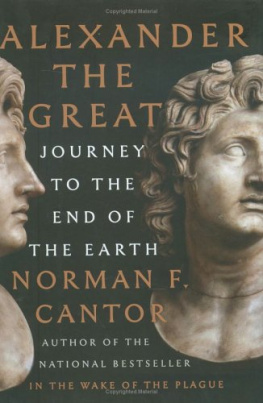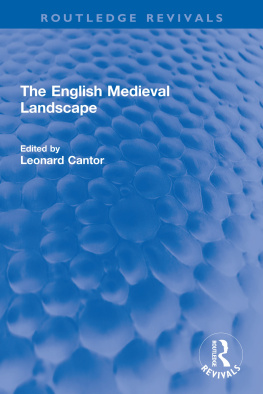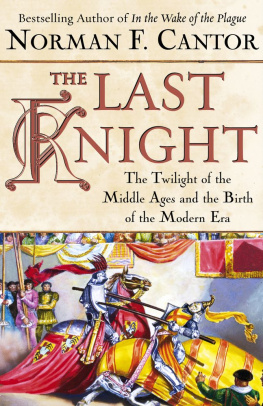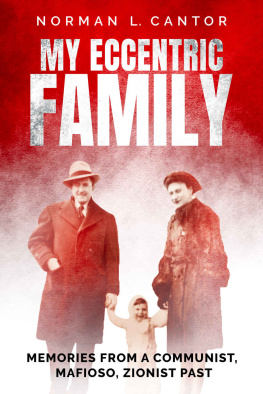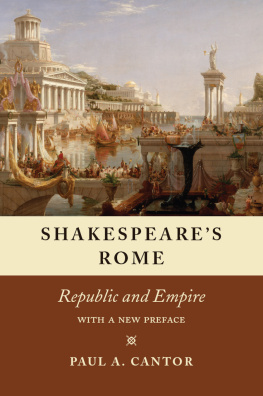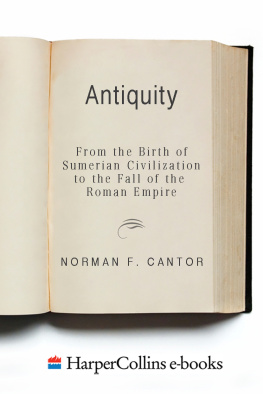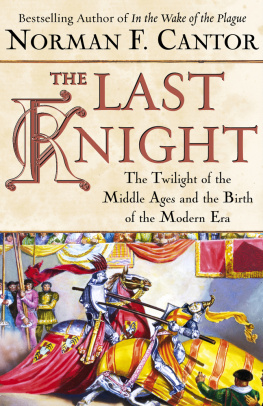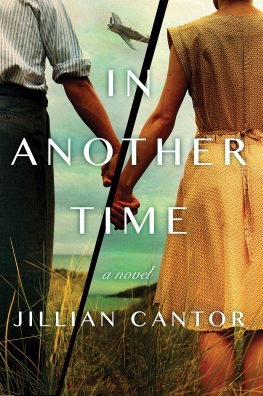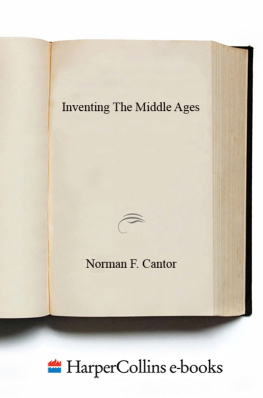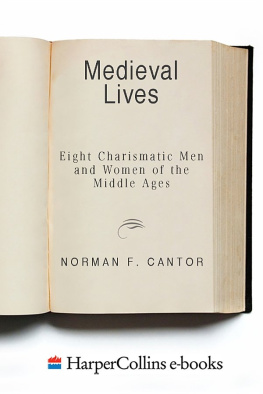Cantor Norman F. - Alexander the Great: journey to the end of the earth
Here you can read online Cantor Norman F. - Alexander the Great: journey to the end of the earth full text of the book (entire story) in english for free. Download pdf and epub, get meaning, cover and reviews about this ebook. City: New York, year: 2007;2005, publisher: HarperCollins;HarperPerennial, genre: Non-fiction. Description of the work, (preface) as well as reviews are available. Best literature library LitArk.com created for fans of good reading and offers a wide selection of genres:
Romance novel
Science fiction
Adventure
Detective
Science
History
Home and family
Prose
Art
Politics
Computer
Non-fiction
Religion
Business
Children
Humor
Choose a favorite category and find really read worthwhile books. Enjoy immersion in the world of imagination, feel the emotions of the characters or learn something new for yourself, make an fascinating discovery.
- Book:Alexander the Great: journey to the end of the earth
- Author:
- Publisher:HarperCollins;HarperPerennial
- Genre:
- Year:2007;2005
- City:New York
- Rating:4 / 5
- Favourites:Add to favourites
- Your mark:
Alexander the Great: journey to the end of the earth: summary, description and annotation
We offer to read an annotation, description, summary or preface (depends on what the author of the book "Alexander the Great: journey to the end of the earth" wrote himself). If you haven't found the necessary information about the book — write in the comments, we will try to find it.
The last work of the late historian Cantor (In the Wake of the Plague) is a flat and uninspiring study of a leader of gigantic proportions and unparalleled courage. Drawing heavily on previous modern biographies, as well as on biographical sketches from Plutarch, Arrian and other ancient writers, Cantor recreates Alexanders world, his military campaigns and his family life. Cantor mechanically traces Alexanders military exploits through Persia, Jerusalem and India, where he often freed the people of one region from a tyrant and then enslaved them himself. In tantalizing brevity, Cantor provides a picture of the bloody civil wars, the superstition and fears, and the environment of honor and shame in which the young prince grew up. Alexanders reputation as a chivalrous leader developed much later, Cantor says, both in the Alexandrine romances of the first century and in Christian legend and lore of the Middle Ages. The author clearly demonstrates that Alexanders greatness derives primarily from his abilities as a field commander rather than from his abilities as a political leader. Regrettably, Cantor offers no startling information that would help distinguish his short biography from the more complete and detailed works of Robin Lane Fox, Peter Green or Michael Wood. Map.
Copyright Reed Business Information, a division of Reed Elsevier Inc. All rights reserved.
Starred Review Has the famous Macedonian king been done to death? Several biographies of the conqueror of what was then the known world have appeared recently; however, turn to this extremely useful one for its incomparable mix of insight and cogency. Professor Cantor, author of, among other books, the best-selling In the Wake of the Plague (2001), begins with a trenchant explanation of the context for understanding Alexander--the tenets of ancient Greek culture--which is matched, as if by a second bookend, by the authors equally solid concluding--chapter summation of the mans greatness. In between lies the heart of the book, in which Cantor, easing the reader along in an effortlessly styled, smoothly flowing narrative, reconstructs the events in Alexanders life; but more difficultly, given the expanse of time between then and now, he offers a valid evaluation of the mans character. Military exploits (in Alexanders case, of course, military talents) are excitingly revivified, and honesty is the hallmark of Cantors appreciation of Alexanders relationship with his longtime male lover, Hephaestion. A book that does the biographical art proud. Brad Hooper
Copyright American Library Association. All rights reserved
Cantor Norman F.: author's other books
Who wrote Alexander the Great: journey to the end of the earth? Find out the surname, the name of the author of the book and a list of all author's works by series.

